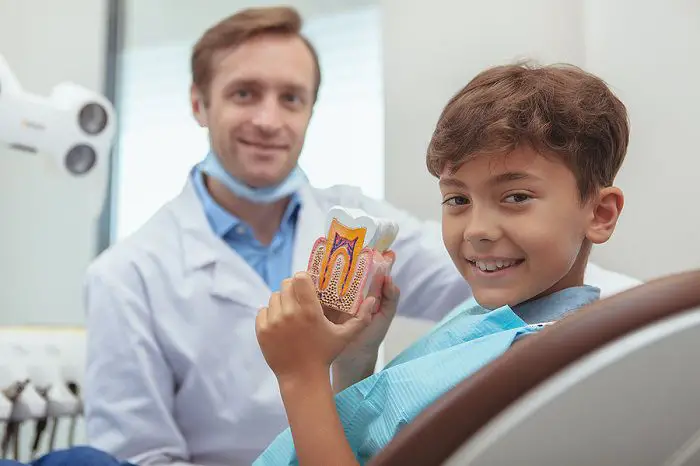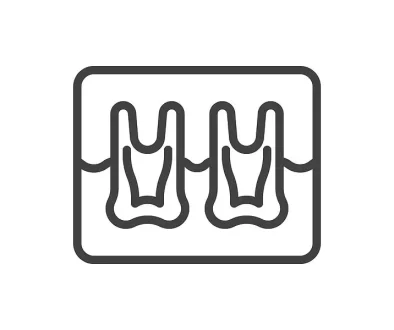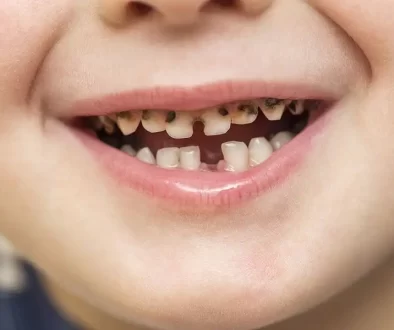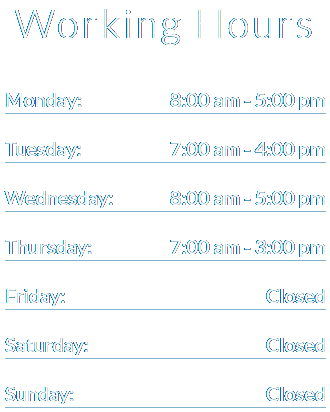 February is National Children’s Dental Health Month in the U.S., and the purpose of this celebration is to raise awareness on the importance of cultivating good oral hygiene habits at an early age. This year’s campaign slogan for the celebration is “Water, Nature’s Drink!”. Tooth decay is the most common chronic disease in children, but drinking water more frequently can help prevent cavities.
February is National Children’s Dental Health Month in the U.S., and the purpose of this celebration is to raise awareness on the importance of cultivating good oral hygiene habits at an early age. This year’s campaign slogan for the celebration is “Water, Nature’s Drink!”. Tooth decay is the most common chronic disease in children, but drinking water more frequently can help prevent cavities.
Drinking water can help prevent cavities because of the following benefits:
- Water dilutes the acid produced by bacteria in the mouth–acid that dissolves teeth and harms enamel.
- Drinking water after a meal washes food debris and sugar away from the teeth.
- Drinking water helps increase saliva production, which can prevent dry mouth and cavities.
- Around the U.S., tap water contains fluoride, which protects tooth enamel. Unfortunately, most of Oregon’s water is NOT fluoridated and therefore not able to help those who need it most.
Learning and practicing better oral health practices from early childhood can develop a lifetime of healthy teeth and gums. We thought we would also answer a few frequently asked questions about children’s dental health and hygiene during this time.
Cavities and gum disease are largely preventable bacterial infections. Often this infection is given to the child from the parents or primary caregivers. The first step towards a child’s healthy mouth begins with ensuring you, as a parent, have a healthy mouth. Babies are born with very little bacteria in their mouth. Kissing your child, testing food, cleaning their pacifier all transfer bugs from your mouth to your baby. When that bacteria is balanced, good and healthy (and remember we all need good bacteria!), you have transferred that healthy start to them. If the primary caregiver has bad bacteria, the child will also likely get the infection.
1. When is the best time to start cleaning my baby’s teeth?
The best time to start cleaning the baby’s teeth is before the first one pops into the mouth. The earlier your child starts having a daily dental hygiene routine, the better to avoid cavities and tooth decay. Begin cleaning the gums over the baby teeth before they fully emerge by wiping with a clean, moist washcloth after every feeding. Once the tooth completely erupts out, the tooth should be brushed twice daily using a soft, child-sized toothbrush and water only. No toothpaste is necessary because the taste is likely too strong. Additionally, the amount of fluoride contained in toothpaste–while perfect for kids older than 2-3–is too much for younger kids because they will likely swallow much of the toothpaste. Non-fluoridated toothpaste at this age is fine, but not necessary. Ensure that you brush the baby’s entire surface of their teeth, including the backside.
2. Are thumbsucking and pacifier sucking habits bad for a child’s mouth and teeth?
Thumbsucking and pacifier sucking habits can become a problem if they go on for a very long period. Along with bottles used exclusively for feeding, these can change facial growth and development directly affecting airway, breathing, speech, crowding of adult teeth and overall health. It is a balance and can be difficult at times. Weaning these habits early (or not allowing them to start at all) will pay off tremendously in the long run-for both health, appearance and in your bank account.
3. Will babies get cavities?
NO! This should not be expected and If precautions are taken–we all should expect to be cavity free. However, babies can get cavities, especially if they are allowed to sleep every day with a bottle filled with milk. Milk – both formula and breast milk contain sugars, and if left on teeth uncleaned, it can facilitate tooth decay. Juice will also cause cavities as it is both sugary and acidic. Water is the only thing that should be in a bottle or sippy cup outside of meal times.
4. Is it possible to prevent tooth decay caused by nursing?
Yes. Along with proper habits, to prevent cavities caused by nursing, avoid nursing children to sleep or putting anything other than water in their bed-time bottle. Some of the many benefits of nursing: it trains proper tongue position, encourages proper growth of the face and mouth and creates a better airway.
5. Can I give my child sweets once in a while?
Of course! The message is that sweets are a treat, not routine. If you are giving sweets to your child once in a while, give it immediately after a meal and not as a between-meal snack. Remember to look at labels. Drinks especially have very high amounts of sugar. Shockingly, a glass of orange, grape or apple juice can have as much sugar as a glass of Coke or Sprite. (as your child gets older, we will spend some time at their appointment doing a science lab calculating this!) Also, don’t forget to clean their teeth immediately afterward.
6. When should I schedule my child’s first dental appointment?
Following the current best practice, we recommend having your baby’s first dental visit by the age of one. This gives us the chance to assess development, answer questions, coach and educate any and all caregivers as well as begin familiarizing your child with the experience. X-rays and traditional cleanings won’t happen until they are a bit older. Even if the child doesn’t have many teeth by age 1, a dental visit at that age can help ensure good oral health now and well into the future. Visits every six months develop a foundation of knowledge, skills and behaviors for a lifetime of good oral health. Dr. Dowsett and his team at Complete Health Dentistry of Portland will help you with any specific questions you may have and provide hands-on instruction on how to care for your child’s teeth and gums.
Here are a few tips to help parents and children celebrate the right way – by learning better oral health practices.
- Maintain a regular oral health routine – brush their teeth at least twice a day, for two minutes each session. Floss at least once a day as it helps remove plaque buildup in the places where toothbrushes can’t reach.
- Drink more water – water helps to keep teeth clean and fight against cavities and tooth decay by cleaning teeth with every sip. And, it’s good for overall health as well as free.
- Have a healthy diet – adding fibrous fruits and vegetables to their diet can keep their teeth clean and healthy.
- Take the children to the dentist every six months – The American Academy of Pediatric Dentistry (AAPD) recommends this to ensure beautiful smiles and healthy bodies–and we agree!
If you would like to learn more or to schedule an appointment, please contact Dr. Dowsett and Complete Health Dentistry of Portland at www.completedentalpdx.com or call us at (503) 253-1262. We are looking forward to joining you on your journey to optimal health.









